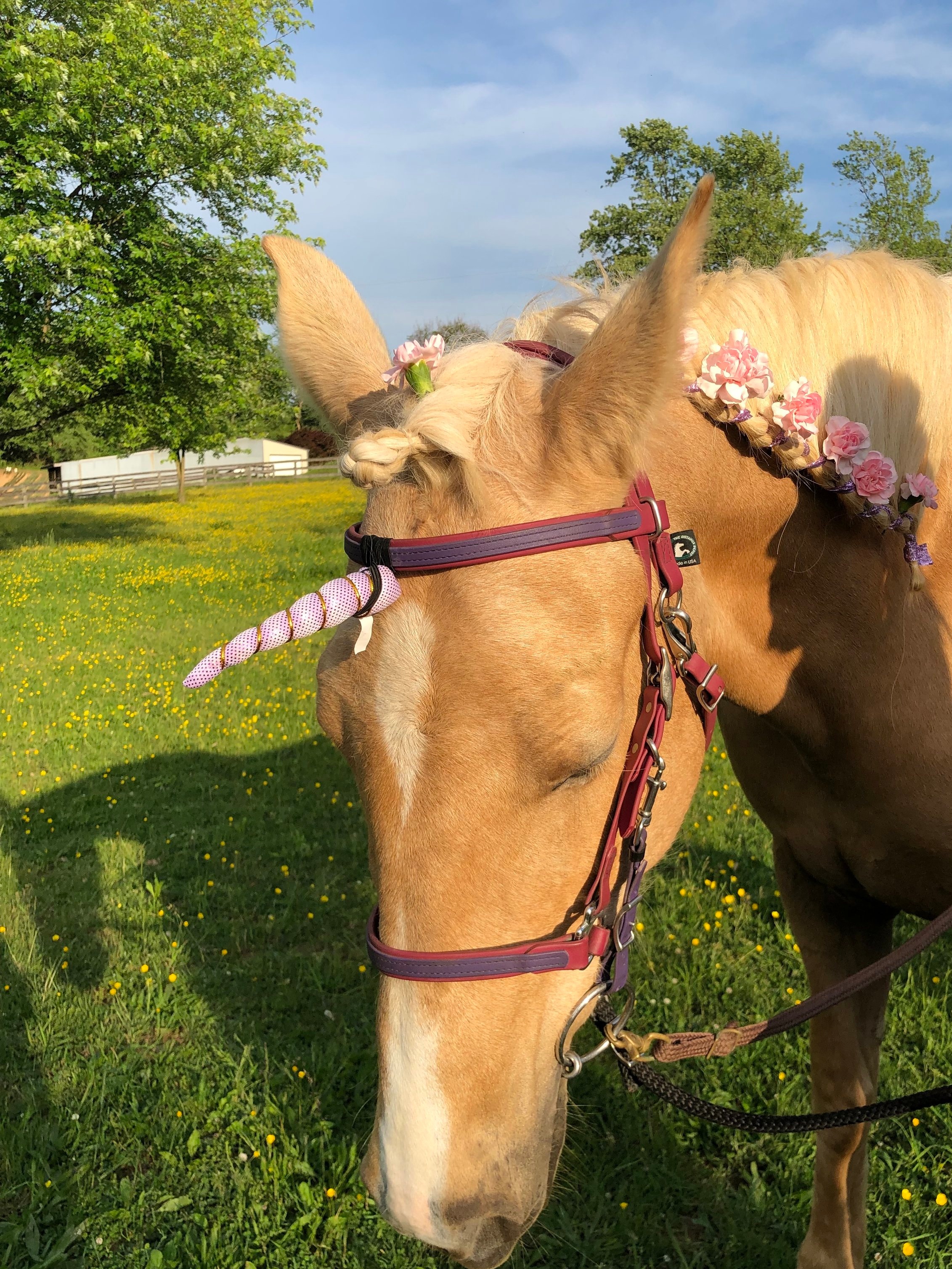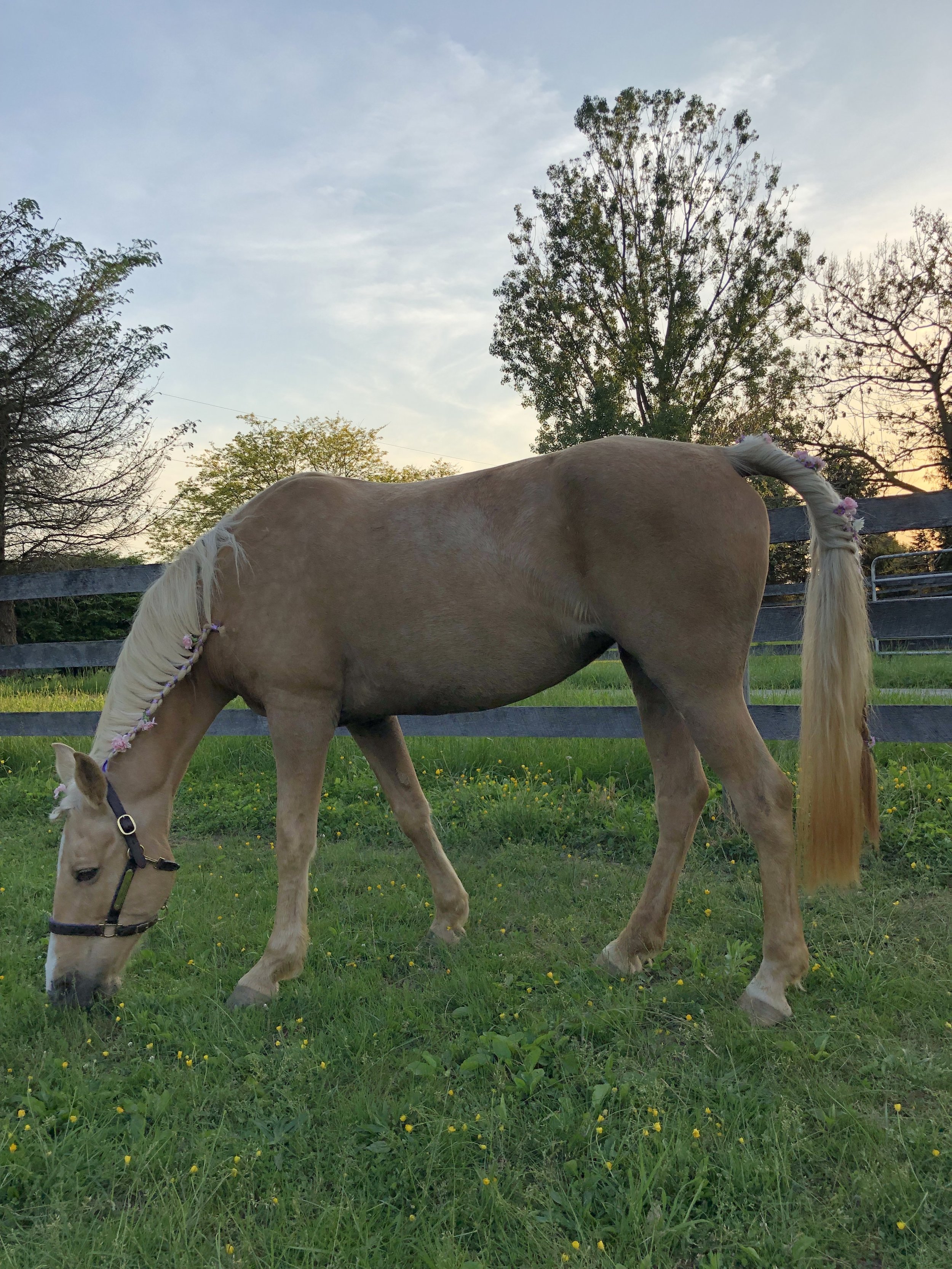Myths relating to horses are prevalent in articles, books and movies featuring equine-assisted therapies. It’s important to understand that horses are not magical mirrors to be used to solve all of our problems with a miracle flick of their ears and blink of their swirling eyes.
Here are a few popular myths we want to dispel right here, right now.🦄
Horses are Mirrors
Horses are not simply mirrors reflecting your feelings or reading your mind. Instead, horses’ instinct as prey animals encourages them to interpret your energy in order to try to keep themselves safe. Since they are social animals, they react off the energy you and other animals around them provide to them. If you are feeling nervous and anxious in the environment, it is likely horses will too because they sense there is something to fear around them that they just haven’t noticed yet.
Horses are Magic
Sure, we’d all love to believe that horses have some unicorn in them, but by saying horses are magical discounts the hard work clients are doing in sessions and the significant contributions of the horse. By all means, horses are wonderful to be around and bring us much joy, they just don’t have a wand or magical powers. The biophilia hypothesis suggests that we as human beings seek connection with nature and other living beings, so it makes sense that we “magically” feel better around horses and outside because we are fulfilling that innate desire. Sessions apply evidence-based approaches that promote their effectiveness through proven science.
Horses are Non-Judgemental
Horses, like all humans, are making judgements about you all the time in your interactions. The difference is horses aren’t making superficial judgements about you. Their judgments reflect how you make them feel, primarily in regards to their safety and comfort. They simply judge whether you make them feel calm or sense danger is near. It’s true they are not judging your hair today or your achievements. Horses assess how quickly you release the pressure from them so they may tell whether they did what you wanted. Horses evaluate whether you maintain boundaries. Horses ask whether they may trust your leadership or whether they should take charge. It’s all still subjective, though, as every horse may interpret these judgements differently.
Horses are Tools
Therapy is certainly optimized with horses as stewards towards our goals. However, horses aren’t tools to be manipulated for any greater treatment need. They are sentient beings with their own feelings, thoughts and needs. Ethical equine-assisted practice requires the horses’ welfare and safety to be considered paramount and enhancing strategies implemented throughout their management. Horses do not choose to participate in sessions or work on any given day. Each session should consider whether horses are actually needed. An art activity in a session should not simply use the horse as a canvas. Instead, the horse serves a role to bridge the two sides of expression or support the reflection of how you want the horse to see you. Since horses aren’t tools or robots, safety cannot be guaranteed either because horses may react in unpredictable or uncontrollable ways. We are never controlling horses, we are communicating our requested partnership and cooperating through the horse-human connection.
Note: This article is not clinical counseling or psychotherapy and it is not intended to treat any mental-health condition. The commentary offered in this blog may not be appropriate for every person depending on their current needs and individual systems. Please consult a physician or mental-health clinician to seek care for your specific needs and goals. If you are experiencing a medical or behavioral health emergency, please immediately call 911 or present to emergency department, as soon as possible.




